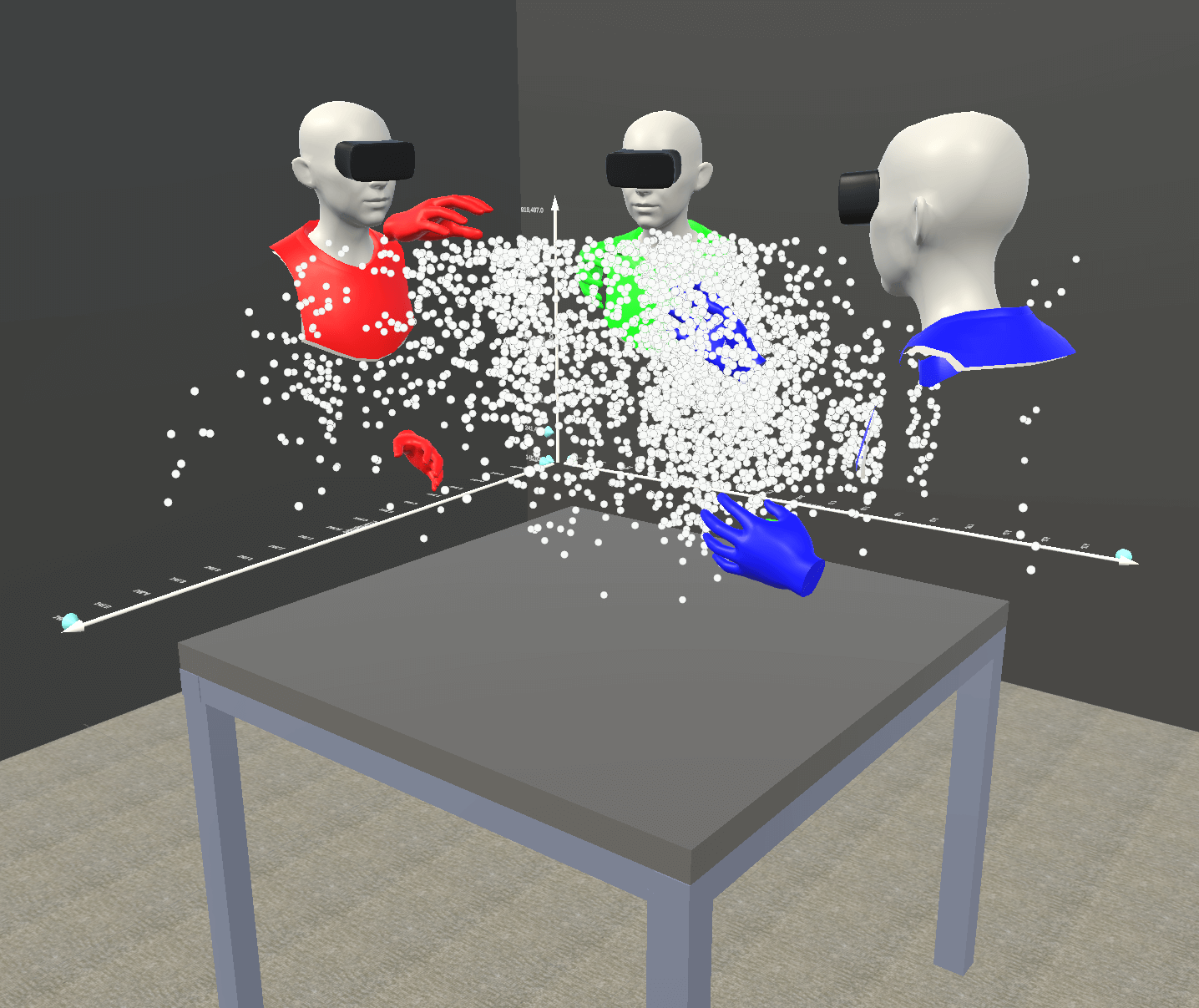Shared Surfaces and Spaces: Collaborative Data Visualisation in a Co-located Immersive Environment
 (opens in new tab)
(opens in new tab)
Venue. VIS (2020)
Abstract. Immersive technologies offer new opportunities to support collaborative visual data analysis by providing each collaborator a personal, high-resolution view of a flexible shared visualisation space through a head mounted display. However, most prior studies of collaborative immersive analytics have focused on how groups interact with surface interfaces such as tabletops and wall displays. This paper reports on a study in which teams of three co-located participants are given flexible visualisation authoring tools to allow a great deal of control in how they structure their shared workspace. They do so using a prototype system we call FIESTA: the Free-roaming Immersive Environment to Support Team-based Analysis. Unlike traditional visualisation tools, FIESTA allows users to freely position authoring interfaces and visualisation artefacts anywhere in the virtual environment, either on virtual surfaces or suspended within the interaction space. Our participants solved visual analytics tasks on a multivariate data set, doing so individually and collaboratively by creating a large number of 2D and 3D visualisations. Their behaviours suggest that the usage of surfaces is coupled with the type of visualisation used, often using walls to organise 2D visualisations, but positioning 3D visualisations in the space around them. Outside of tightly-coupled collaboration, participants followed social protocols and did not interact with visualisations that did not belong to them even if outside of its owner's personal workspace.
Link to this page:

